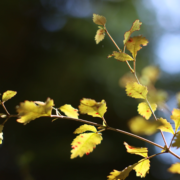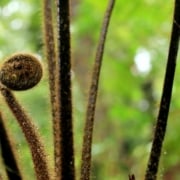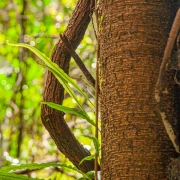Xerostomia: How Acupuncture Can Ease Chronic Dry Mouth After Head and Neck Cancer
If you’ve completed radiation therapy for head and neck cancer but still struggle with persistent dry mouth (also called xerostomia), you’re not alone. Chronic radiation-induced xerostomia can make it hard to speak, chew, swallow, and even sleep. Fortunately, new research shows that acupuncture for cancer care may offer lasting relief.
What Is Chronic Radiation-Induced Xerostomia?
Radiation treatments aimed at curing head and neck cancers can damage the salivary glands, reducing saliva production. This persistent dryness can lead to:
- Oral discomfort and soreness
- Difficulty eating and speaking
- Increased risk of dental decay and infections
- Poor sleep quality and disrupted routines
Traditional remedies, like sipping water, chewing sugar-free gum, and rigorous oral hygiene, often provide only temporary relief.
The Latest Clinical Trial: A Closer Look
“Acupuncture is minimally invasive and inexpensive, has a low incidence of adverse effects, and may be considered as a treatment option for patients with chronic radiation-induced xerostomia.” * citation
A large, community-based trial published in JAMA Network Open compared three approaches for managing chronic xerostomia at least one year after radiotherapy: true acupuncture (TA), sham acupuncture (SA), and standard oral hygiene advice (SOH only).
- Participants: 258 adults (mean age 65.0 years; 77.9% men) from 33 cancer centers across 13 U.S. states.
- Treatment Arms:
- True Acupuncture (TA): Needle stimulation at traditional points twice weekly for 4 weeks (extendable by 4 more weeks if minor response)
- Sham Acupuncture (SA): Needles at non–therapeutic points with similar frequency
- Standard Oral Hygiene (SOH): Brushing, rinses, and lip balms without needles
- Assessment Tools:
- Xerostomia Questionnaire (XQ): Measures dry mouth severity
- FACT‑G: Functional Assessment of Cancer Therapy–General, evaluates overall quality of life
Remarkable Results at 4 Weeks
By the primary endpoint at 4 weeks, those receiving true acupuncture experienced:
- Lower Dry Mouth Scores: XQ score of 50.6 vs 57.3 in the SOH group (difference, –6.67; 95% CI, –11.08 to –2.27; P = .003).
- Better Quality of Life: FACT‑G score of 101.6 vs 97.7 in SOH (difference, 3.91; 95% CI, 1.43–6.38; P = .002).
Notably, sham acupuncture did not outperform oral hygiene alone, underscoring the specific benefits of correctly targeted acupuncture needles.
Why Acupuncture Works
Acupuncture may help by:
- Stimulating Saliva Glands: Improving gland function to boost natural saliva flow
- Modulating Nerve Signals: Calming nerve pathways that contribute to dry mouth sensations
- Reducing Inflammation: Encouraging anti-inflammatory responses around glandular tissue
What This Means for You
If chronic dry mouth from radiation continues to affect your daily life, consider integrating acupuncture:
- Consult Your Care Team: Ask if acupuncture is right for your recovery plan.
- Seek a Trained Practitioner: Look for a registered experienced acupuncturist with good understanding of cancer care.
- Track Your Symptoms: Keep a diary of dryness levels and quality of life to measure progress.
Acupuncture is minimally invasive and has a low risk of side effects, making it an attractive complement to traditional oral hygiene strategies.
Your next step
Don’t let persistent dry mouth hold you back. Talk to your healthcare provider about acupuncture referral. If you’re coming to see our experienced team at Dr Vitalis Acupuncture Auckland, you don’t need to be referred. Get in touch to see how you can benefit from this natural treatment.


